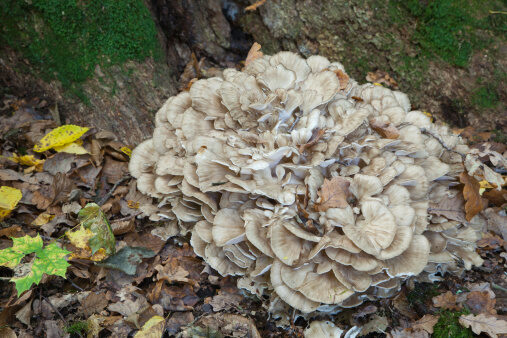East Rutherford, NJ—A paper published in the Journal of Medicinal Foods provides evidence that Maitake D-Fraction, a proprietary extract of the Maitake mushroom developed by Mushroom Wisdom, Inc., induces apoptosis in human breast cancer cells. Researchers from Portugal and Argentina examined the protein-bound polysaccharide extract’s direct anti-tumor potential, having cited the need for an “effective and rapid” treatment for breast cancer, the second leading cause of cancer death in women.
The study applied five different concentrations of Maitake D-Fraction to isolated strains of human breast cancer cells, and along with one control strain, incubated them for 24 hours. The goal was to measure the effect the extract had on cell viability, or their ability to survive, and apoptosis, or necessary cell death. Dose-dependently, the experimental strains all exhibited degrees of decreased cell viability.
Genomic analysis revealed that twenty-two pro-apoptosis genes had been up-regulated. At the highest dose, BAK-1 gene expression, tied especially to apoptosis, was found to have increased 25-fold. More evidence included the discovery that cytochrome c had been released. This substance is thought to be involved in mitochondrial dysfunction, a part of the wider apoptotic process.
Maitake D-Fraction had already been associated with the activation of immune cells, including macrophages, T cells and natural killer cells. In addition, it had previously been studied for similar apoptosis-inducing activity in prostate cancer, by researchers at New York Medical College.
Published in WholeFoods Magazine, September 2011.










